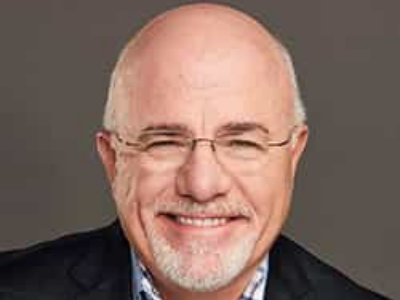UN adds 68 companies to blacklist for alleged complicity in rights violations in Israeli settlements
News > National News

Audio By Carbonatix
7:02 AM on Friday, September 26
By JAMEY KEATEN
GENEVA (AP) — The United Nations has added nearly 70 more companies to a blacklist of firms from 11 countries that it says are complicit in violating Palestinian human rights through their business ties to Israeli settlements in the occupied West Bank.
The new list spotlights companies that do business that's deemed supportive of the settlements, which are considered by many to be illegal under international law. It includes an array of companies like vendors of construction materials and earth-movers, as well as providers of security, travel and financial services.
“Businesses working in contexts of conflict have a due diligence responsibility to ensure their activities do not contribute to human rights abuses,” said Ravina Shamdasani, spokesperson of the U.N. human rights office. “We call on businesses to take appropriate action to address the adverse human rights impacts of their activities.”
The list now contains 158 companies — the vast majority Israeli. The others are from the United States, Canada, China, Britain, France, Germany, Spain, Portugal, the Netherlands and Luxembourg.
Israel said it “categorically rejects” the publication. “This database is meant to serve as a blacklist against businesses that have committed no wrongdoing,” the Israeli diplomatic mission in Geneva said in a statement. “We call on friends not to yield to this ugly attempt to blacklist Israeli firms.”
The U.N. office said it had advised the companies of their listing and given them a right of reply.
The blacklist was born of a vote by the U.N.’s Human Rights Council, which has no legal authority or ability to force companies to act. Its main goal is to name and shame businesses with ties to the settlements. It is not clear what impact inclusion on the blacklist has had on companies’ bottom lines.
Newcomers to the list include German building-materials company Heidelberg Materials, Portuguese rail systems provider Steconfer, and Spanish transportation engineering firm Ineco. Among those still on the list are travel-sector companies U.S.-based Expedia Group, Booking Holdings Inc. and Airbnb, Inc.
Heidelberg Materials said in an email to The Associated Press that it and subsidiary Hanson Israel — which was also added — were not active in the occupied Palestinian territories, and that as a result it considered their inclusion to be “not justified."
Steconfer protested that it has a “neutral, apolitical role” as a business and asked the U.N. rights office to reconsider. Its work on a Jerusalem rail transport project is “technical, indirect, and strictly limited to improving public transportation for all residents, without discrimination,” it added in a statement.
Ineco said it has provided technical expertise for transport engineering projects serving civilians “strictly within internationally recognised territories” in Israel, where it has been active since 2005.
Following Israel’s “escalation of violence” in Gaza after Hamas’ Oct. 7, 2023, attack, Ineco said it began a review of its strategy in the country and began a process of disengagement. That resulted in “a clear decision” not to pursue new contracts with Israeli authorities or companies while honoring existing contractual obligations, it said in a statement.
While 68 new companies were added Friday, seven were taken off. A total of 215 business enterprises were assessed in this round, but hundreds more could get a look in the future.
Among the seven companies taken off the list were French transportation company Alstom and travel service providers eDreams, of Spain, and Opodo, of Britain.
The rights council passed a resolution nearly a decade ago to create the list, and Israel has sharply criticized it since. The revision could further isolate Israel at a time when some of its European allies have recognized an independent Palestinian state over Israel's conduct of its war against Hamas in Gaza.
Months in the making, the revised list comes as Israel has made veiled threats to annex parts or all of the West Bank and has approved plans to build thousands of new settlement homes there.
The government approved a controversial settlement project last month that would effectively split the West Bank in two, a step that would all but bury hopes for a Palestinian state in the territory.
The international community says dividing the territory as part of a two-state solution would leave Israel as a country with a solid Jewish majority and allow the Palestinians to realize their dreams of self determination.
The alternative, many say, is an apartheid-like country divided roughly evenly between Israelis and Palestinians in which Jews would rule over the Palestinians.
This is the first revision to the list since 2023, when 97 companies were listed — down from 112 in the original list published in 2020. Among those taken off last time was U.S.-based food and cereal giant General Mills.
The council decided that 10 business activities in the settlements could merit inclusion of a company in the list, such as dumping pollution in Palestinian areas, supplying bulldozing equipment, surveillance gear, and even helping people book travel or lodging in the settlements.
The U.N. has budgeted enough funding for a single full-time staffer to handle the painstaking, sensitive work of gathering and assessing claims and communicating with companies in question. Claims about hundreds of other companies are awaiting assessment.
With broad international backing, the Palestinians claim the West Bank, east Jerusalem and Gaza for a future independent state.
Israel has said it has no intention of dismantling any of its West Bank settlements.
Over 500,000 Israelis live in the West Bank, in addition to more than 200,000 in east Jerusalem. The postwar future of Gaza, which has suffered massive destruction, remains unclear, though Israeli Prime Minister Benjamin Netanyahu has ruled out an independent Palestinian state.
Israel and the U.S. regularly accuse the Human Rights Council of anti-Israel bias, and the Trump administration has pulled the United States out.
___
Josef Federman in Jerusalem; Suman Naishadham in Madrid and Helena Alves in Lisbon, Portugal, contributed to this report.






